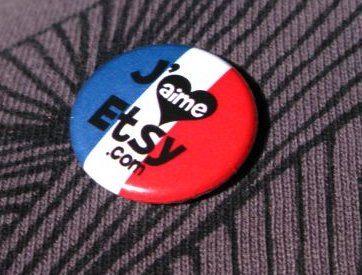
By Peri Schweiger and Jackie Marcus
Corporate responsibility professionals have had a not-so-secret crush on investors for years. However, the investment community has been playing hard-to-get. There have been glimmers of interest – socially responsible investment funds, a few bold shareholder resolutions – but little signal from the broader community that a real relationship was imminent.
The appeal
Thankfully, the long awaited day may have arrived. Consumers continue to expect the companies they support to do their part in contributing to the greater good. The Edelman 2015 Trust Barometer found that 81 percent of respondents agree that a company can take specific actions that both increase profits and improve the economic and social conditions in the community where it operates. And these aren’t just consumer beliefs – this sentiment is backed by numerous studies, including those from McKinsey & Co. and Harvard Business School, which have found that corporate responsibility practices do positively impact a company’s bottom line.
These findings should make an investor sit up and pay attention.
As companies realized that sustainable practices can help rather than a hinder profit, the B Corp movement emerged, providing a framework and certification for companies looking to give parity to social priorities alongside financial ones. To date, more than 1,000 companies have become certified B Corps, publically accepting accountability for delivering both societal and financial returns.
This movement is mostly led by smaller, privately-held companies. But we are increasingly noticing bigger names pledge their commitment, including Patagonia and Warby Parker. The buzz is even spreading to multinational consumer giants, with Unilever* CEO Paul Polman hinting at the January 2015 World Economic Forum Annual Meeting that the company could soon become the biggest B Corp in the world.
Making the first move
Putting a company’s social and environmental returns on the same level as financial returns is a big deal – and a serious departure from the usual investor frame of mind. While Boulder, Colorado-based Rally Software broke the barrier as the first B Corp to go public in April 2013, last week, the much larger Etsy took the baton in an IPO valuing the company at $3.38 billion.
A bold ask of investors? Maybe. But Etsy is also riding a trend. It may only be the second B Corp IPO, but if you take a closer look, some of the hottest IPOs in recent years have been openly purpose-driven companies. Take Shake Shack, for example, a company that puts its commitment to “Stand for Something Good” front and center, priding itself on constructing its restaurants from sustainable and recycled materials and serving hormone-free, humanly-raised beef. In its January 2015 market debut, the fast casual burger chain more than doubled its IPO price. Among the leading headlines about the IPO was what the payday meant for Shake Shack’s long-time nonprofit partner Share Our Strength. A few months prior to the IPO, an investor transferred $1 million worth of stock to the anti-hunger organization.
A first date
So, what does all this mean for companies – both those that are already public and those considering going public? A few things:
- There is now a proven path. The theory that purpose and profit conflict has been disproved. Purpose-driven companies have topped the $1 billion mark, leaving a roadmap for other companies in their wake.
- Don’t be afraid to be bold. The climate has never been better for companies that want to meaningfully integrate purpose into their business strategy. Take another look across your value chain to find places you could realize business and societal gains you might not have been able to make before. Companies are breaking the mold every day and forging profitable new solutions to social and environmental challenges.
- Investors are increasingly interested. More and more investors are ready to talk and therefore should be considered a primary stakeholder audience for corporate responsibility. Don’t be afraid to communicate to this audience to show how an orientation for purpose doesn’t just help a company mitigate risk, but also can build substantial shareholder value.
As with any flourishing relationship, it all starts with that first conversation. The time is now for companies to break down those barriers and start courting Wall Street with purpose as part of the package.
* Edelman client
Image credit: Flickr/moon angel
Peri Schweiger works in Business + Social Purpose at Edelman and Jackie Marcus works Financial Communications & Special Situations.
TriplePundit has published articles from over 1000 contributors. If you'd like to be a guest author, please get in touch!














